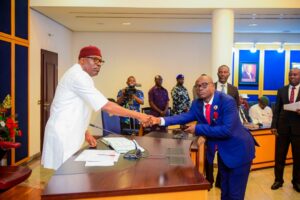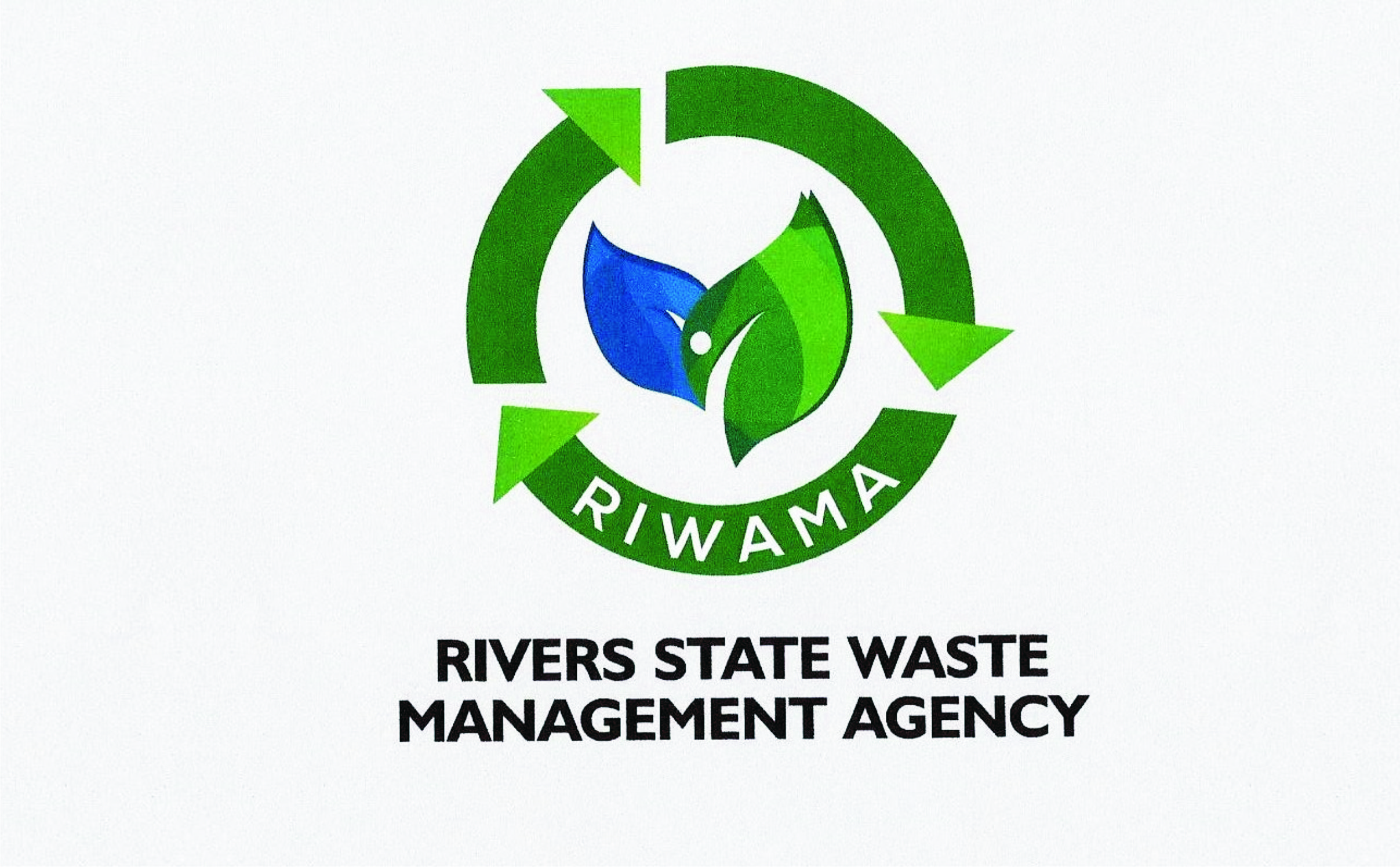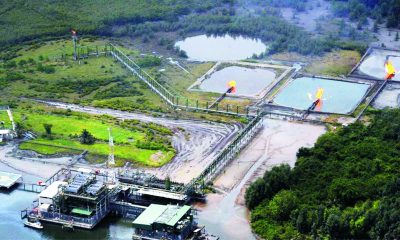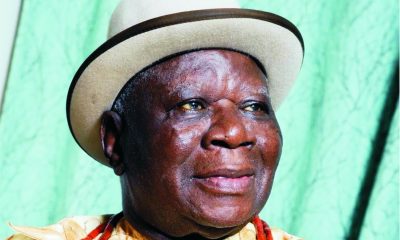News
IMF Hinges Nigeria’s 3.1% Economic Growth Outlook On Stronger Reforms
The International Monetary Fund (IMF), says achieving Nigeria’s projected 3.1 per cent economic growth outlook for 2024 is dependent on implementation of stronger reforms.
Dr Christian Ebeke, IMF Resident Representative, said this at the Lagos Chamber of Commerce and Industry (LCCI) International Business Conference and Expo 2024 with the theme: “Invest Nigeria”, in Lagos, yesterday.
Ebeke said that for the country to grow slightly from the 2.9 per cent rate of 2023, further reforms on governance and business regulations were needed.
He said that such reforms would transform its growth momentum into something more durable.
He, however, said that the country had recorded progress in its credit market, as well as financial and external sectors.
“Insecurity, tight financial conditions, multiple taxes, insufficient power and corruption are foremost constraints identified by businesses.
“What comforts the IMF is that these issues can be addressed by the Nigerian government, and they are currently being addressed through reforms by the Federal Government.
“And we are encouraged by the fact that these issues can be reversed,” he said.
He said that Nigeria should close the structural gaps like India, by reducing governance and business regulation bottlenecks by 25 per cent.
According to him, if that is done, the Gross Domestic Product (GDP) output can be lifted by 6.4 per cent in the next three years.
The Minister of Marine and Blue Economy, Adegboyega Oyetola, said that Nigeria’s strategic location and abundant resources presented vast investment opportunities, particularly in the marine and blue economy sector.
Oyetola said that in spite of existing challenges, government was committed to creating an enabling environment to foster economic growth to attract significant investments.
He highlighted some of government’s incentives designed to drive investment in the marine and blue economy sector to include tax exemptions for businesses operating in free trade zones, and infrastructural support.
He added that government had provided new export opportunities for the marine sector under the Guided Trade Initiative (GTI) of the African Continental Free Trade Area (AfCFTA), the Cabotage Vessel Financing Fund (CVFF) among others.
“Our commitment to the marine and blue economy is demonstrated through ongoing port rehabilitation and modernisation projects.
“To boost investment, the Nigerian government has introduced a wide range of incentives, including tax reliefs, trade zone benefits, infrastructure development, and financial support.
“I encourage the business community and investors to take advantage of such incentives to contribute to Nigeria’s economic development and be part of Africa’s promising future,” he said.
Gov. Babajide Sanwo-Olu of Lagos state, said that the state, being Africa’s economic hub, offered a conducive business environment, a strategic location, vast market, and pool of energetic talents.
Sanwo-Olu said that his administration had implemented and continued to implement policies and initiatives to attract investments, create opportunities, and drive growth.
He said that one key area of focus for the state was infrastructure development.
He said that the state was upgrading and expanding transportation and logistics networks, telecommunications, healthcare, education and digital ecosystem infrastructure.
According to him, the projected growth will not happen without a solid foundation of infrastructure that is able to keep ahead of our rapidly-growing population.
“As one of Africa’s startup capitals, we are specially keen to invest in digital infrastructure to power the innovative ideas of our people.
“Agriculture and food security are also priorities, in line with a national focus on these areas.
“Lagos may be the state with the smallest landmass in Nigeria.
“But I can boldly say that our land disadvantage is more than offset by the boldness with which we are embracing the boundless opportunities in processing, value-addition and logistics.
“This is why we are building Africa’s largest food logistics hub, here in Lagos,” he said.
The governor said that when completed, the hub would be able to hold enough food to supply Lagos for 90 days in the event of shortages.
He said that it would serve millions of farmers, traders and other players in the agricultural value chain.
“In addition, we are developing our tourism and entertainment sector with various investments in hospitality, leisure, and cultural infrastructure, to showcase the best of Lagos and Nigeria.
“We will continue to roll out incentives for investors.
“From tax breaks and waivers, to streamline regulatory processes, and a judicial system that is competent, efficient and guarantees the sanctity of contracts and property rights,” he said.
Mr Gabriel Idahosa, President, LCCI, said that the conference was pivotal to Nigeria’s journey towards stabilising the economy and driving sustainable economic growth and development.
Idahosa said that the event was a unique opportunity to explore new avenues for investment, foster innovative partnerships, and chart a course toward a more prosperous future for Nigeria and the African continent.
He said that Nigeria, blessed with vast resources and an entrepreneurial spirit, was home to the largest economy in Africa, a burgeoning middle class, and a youthful population eager to contribute to the global economy.
“To fully harness the nation’s potentials, there must be an enabling environment to support business growth, encourage innovation, and ensure that local and international investors remained confident of their investments.
“We have noticed government’s commitment to making Nigeria a preferred destination for global investors.
“We are actively engaging with the government in implementing policies that promote ease of doing business, improve infrastructure, and enhance security, “ he said.
“We also see the government embarking on bold reforms in various sectors, including agriculture, energy, foreign exchange markets, and technology, to further diversify our economy and reduce our reliance on oil.
“We urge the government to create a policy and regulatory environment to attract foreign investments into building factories in Nigeria to manufacture the many products we import today,” he said.
Meanwhile, Ambassadors to countries such as Belgium, Germany, Israel, Bulgaria, India, Ireland, Kenya and Bangladesh, affirmed their commitments to deepening partnerships with Nigeria across several sectors of its economy in mutually beneficial ways.
News
Enforce Discipline In Legislative Service, Fubara Charges New RSHA Commission

Rivers State Governor, Sir Siminalayi Fubara, has charged newly sworn-in chairman and members of the State House of Assembly Service Commission to achieve greater productivity, promote highest standard and insist on best practices in the discharge of Legislative services.
Governor Fubara also urged them to ensure that parliamentary staff are put through disciplinary conducts in the discharge of their duties in the service.
Governor Fubara gave the charge shortly after the chairman and members of the Rivers State House of Assembly (RSHA) Service Commission were sworn-in at the Executive Chamber of Government House in Port Harcourt, last Friday.
The Governor also sworn-in the chairman and members of the Rivers State Local Government Service Commission.
Hon Tamunosisi Gogo-Jaja, is the chairman of RSHA, with Dr Kennedy Ebeku, Hon. Soberekon Clark, Hon. Jones Ogbonda, and Hon Kingston Sylvanus as members.

For the Rivers State Local Government Service Commission, Hon GoodLife Ben will serve as the chairman, with Chief Emmanuel G. Jaja, Ms. Betty Warmate, Barrister Jerome Chimenem, Hon Prince O. Ohochukwu, Barrister Philip Okparaji, and Christian Amadi as members.
Governor Fubara explained that the constitution and swearing-in of the respective commissions were delayed with the hope that all former members of the political block will come back together but quickly added that such expectation is dashed now as governance has to move on.
He said: “As it stands now, our position is very clear. The ship that we are onboard is clear, and the activities of governance have to continue.
“So, this swearing-in is to give these two units of government – particularly, the House of Assembly Service Commission, a formal commission so that you can start carrying out the activities of promotion, discipline and every other thing that has to do with the legislative staff activity.”
Governor Fubara emphasised: “This assignment is not business as usual. You have to take full charge, and you have to ensure that there is discipline in the service.”
Speaking on the Local Government Service Commission, Governor Fubara said an acting Chairman was previously appointed to hold brief while the situation was being studied but quickly added that as it stands now, a full fledged commission has to be constituted to steer affairs.
Governor Fubara stated that the various Local Government Councils have been mandated to commence payment of the N85,000.00 Minimum Wage to their workers.
However, Governor Fubara said that mandate had met with series of complaints about ghost workers or inflated payroll staff list, which required proper scrutiny in order to ensure that only genuine workers benefit.
He said, “You must ensure that you support the Local Government Chairmen to get rid of those fake names in the payroll, so that when they implement the N85,000.00 Minimum Wage, it will not be too much burden on them.
“I am not saying you should go and dismiss people who are genuinely employed. Hear me very well: there must be proper scrutiny to be sure that whoever is there must be a genuine civil servant employed by the commission, and must have met all the conditions.”
Governor Fubara also directed the commission to address the issue of staff stagnation on a particular grade level, which is an ugly practice, and make sure those due promotion truly benefit from statutory progression in the service.
He said, “The second side is, you have the issue of promotion, you must also ensure that they are adequately promoted so that they can start enjoying like their counterparts in the mainstream.
“There is too much dragging of their promotion, for somebody to be on Grade Level 4 for over 30 years is not good. It is not good news.”
Governor Fubara maintained: “I believe strongly that you will not allow yourselves to be corrupted like those stories that we used to hear. Make sure that there is acceptable level of discipline and standard in the Local Government Service Commission.
“I also believe strongly that you are already prepared for this assignment, and since you are prepared, I will charge you to go do what you know how to do best. Be assured that the government will give you all the necessary support.”
Governor Fubara noted that the task before them could seem Herculean but they should be assured of support from his administration to drive the assignment given to them to reckonable success.
News
Be Innovative In Waste Management, Fubara Tasks RIWAMA ….. Inaugurates Six-Member Board

Rivers State Governor, Sir Siminalayi Fubara, has said that the open dumping of wastes has to be replaced with a more innovative and efficient disposal method so that wastes can be taken off the streets and turned into income-yielding ventures.
Governor Fubara made the assertion while giving charge to the newly constituted Board of Directors of the Rivers State Waste Management Agency (RIWAMA) and its Managing Director at Government House in Port Harcourt, last Friday.
The Board members included Engr. Edward Namiesimagh as the chairman, while Hon. Bishop Best, Dr. Ipalibo Sogules, Richard Mazi, and Civian Y. Nwibari are members, with Hon. Orukwem Amadi-Oparaeli as the Managing Director.
Governor Fubara said waste disposal and management have remained a major global concern, adding that over the years, successive administrations in the State had struggled to take wastes off the streets but ended up taking them to other dumpsites where they constitute nuisance and environmental hazards.
He said, “Today, I am here putting a team together to look at these challenges differently. Let it not be the regular pattern whereby at the end of the month, you come to collect money from me for payments.
“Don’t indulge in appointing your friends as sweepers, evaluators of debris, then you start building hotels, or buying big cars. Let us go beyond that and tap into the potentials of waste management.
“It is an area in this world that there is so much money in. It is an area that creates employment, and generates huge revenue. It is not just depending on what I will give to you. Consider what change you’ll bring to the work, that’s what I want to see in Rivers State.”
Governor Fubara told them that they were carefully selected because of the experiences they had garnered in their previous public assignments, and urged them to replicate their successes on a bigger scale with the new appointment.
The Governor advised them to work assiduously to bring back the beauty of Port Harcourt with effective waste disposal drive, and ensure the city is clean and green to reflect its old Garden City status.
Governor Fubara emphasised: “If not for our effort, today, some people could have even changed it to become Garbage City. But God forbid, it is not going to be in our own time.
“I want you to understand that I feel very unhappy with the sight I see. When you are driving into Port Harcourt, one of the first things that will welcome you is the waste dump that you see along the Obiri-Ikwerre-Airport Road. I don’t feel happy about it.
“Your first task should be to relocate it. That particular place needs to be completely closed because it is the entrance to the city. You need to get a new place where we can relocate our wastes.”
Governor Fubara urged them to be more responsible as they discharge their assignment, saying that it is more important to see results than being merely preoccupied with the aura of office.
The Governor warned that he will not hesitate to relieve anyone found wanting, and return the agency back to the era of a sole administrator running the affairs of the agency.
He noted, “This team cuts across all the Senatorial Districts, so that whatever you are going to do there, you ensure it spreads. While you are also carrying out this job, let it be known to the world that the interest of everybody in the State is accommodated.
“It shouldn’t be one-sided. Make sure that all our supporters who have the capacity and competence to do little jobs in the refuse area are also accommodated. I am serious. I have no doubt that you are going to impress us. So, I charge you to do all you can to make sure that the face of Port Harcourt changes when it comes to the issue of refuse.”
Governor Fubara told them to be good ambassadors of his administration as they interface with members of the public while also changing the face of refuse management in the State.
In his acceptance speech, Chairman of Rivers State Waste Management Agency (RIWAMA), Engr. Edward Namiesimagh, expressed appreciation to the Governor, on behalf of members of the Board, for finding them worthy to handle such difficult but surmountable task of keeping Port Harcourt clean.
He said, “When I see the calibre of people you assembled, all of us are happy, and I assure that with our period of experience in our fields and politics and interaction with people and the zeal that comes with this job, we assure you that we will do our best to make sure that the policy of restoring Port Harcourt to its lost glory is achieved with your support.”
News
Fubara Graces Agric Commissioner’s Wedding At Ciwa

Rivers State Governor, Sir Siminalayi Fubara, on Saturday, graced the solemnization of Sacrament of Matrimony between Engr Victor Kii, and his heartthrob, Engr Mercy Mankwe.
Engr Kii is the Rivers State Commissioner for Agriculture.
The wedding ceremony was held at Our Lady of the Holy Rosary Chaplaincy, Catholic Institute of West Africa (CIWA), along the Port Harcourt-Aba Expressway, Rumuibekwe in Obio/Akpor Local Government Area.
In his Homily, the Chief Celebrant, Bishop of the Catholic Diocese of Sokoto, Most Rev Matthew Hassan Kukah, said marriage is an enduring union, ordained by God for two persons – man and woman – who have decided in love to live their lives together.
Bishop Kukah stated that people in such Christian marriage should know that they are in an indissoluble union, bounded by faith, and advised them to gladly make personal sacrifices in tolerance and care for each other so that they can have a healthy, successful and rewarding life together.
In his vote of thanks, co-celebrant, Very Rev Monsignor Pius Kii, showered commendations on the Governor for his fatherly support to the family, and the numerous landmark achievements in various sectors across the State.
The clergy and the church took the opportunity to pray for the success and good health of Governor Fubara and his administration, and urged God to protect, guide and defend him at all times.
The church also presented 50th birthday cake and gifts to the Governor, and also sang birthday songs to accentuate the celebration.
Highlights of the event were the signing of the marriage register by the new couple, Victor and Mercy, and the cutting of the 50th Birthday cake by the Governor.
-
Niger Delta5 days ago
Delta Approves N275bn For 76 Projects Execution
-
Features5 days ago
A Farewell To Arms In Ogoni
-

 Business5 days ago
Business5 days agoNigeria’s Non-Oil Exports Growth Rises 20.7% To $5.45bn In 2024
-
Politics5 days ago
2027: SDP Advocates Principles-Based Alliances For Good Governance
-

 News5 days ago
News5 days agoFubara Expresses Grief, Commiserates With Family Over Death Of Pa Edwin Clark
-
Business5 days ago
NCDMB, Starzs Gas Upbeat On Industrialisation …Unveil CNG Project In Delta
-

 Niger Delta5 days ago
Niger Delta5 days agoUNICAL VC Institutes Scholarship To Reward Academic Excellence
-
Sports5 days ago
Aruna Eyes Title Defence, W’Cup At African Cup

